
Cobus Meyer, who farms on 1 000ha near Leeudoringstad in North West, says the frequent droughts in that part of the world made expanding the family farming business a matter of urgency.
Because theirs is a relatively small farm for the area, horizontal expansion was not an option; they had to expand vertically to add value.
After conducting detailed research, Meyer and his father, Cobus Sr, decided on Kalahari Red goats, as they were impressed with the breed’s hardiness, adaptability, fertility and excellent meat production. In 2009, they established the Greenstone Kalahari Red Goat stud.
The climate in North West is one of extremes. The temperature drops to below 0°C in winter and increases to the low 40s in summer. And while the farm receives an average annual rainfall of 550mm, the region is often subject to dry spells. Under these taxing conditions, Meyer needed a hardy goat breed.
Kalahari Reds met all his requirements, as they are ideal for extensive farming conditions, and are a truly economical breed. In addition, they are known for accelerated growth, and are ideal for commercial meat production.
“The bottom line is that there’s money to be made from Kalahari Reds.”
Demand for these goats far exceeds supply, and this means top prices for both stud and commercial breeders, he says.
An estate agent in Pretoria, Meyer has been running the Kalahari Red Stud since its inception. This year, he decided to return to the farm, so it was important to find a profitable business that could contribute to the income of his household as well as that of his parents.
The farm’s beef production concern had come to a standstill because of the drought, and the goats now constitute the primary source of income.
INTENSIVE BREEDING
This story is from the December 06, 2019 edition of Farmer's Weekly.
Start your 7-day Magzter GOLD free trial to access thousands of curated premium stories, and 8,500+ magazines and newspapers.
Already a subscriber ? Sign In
This story is from the December 06, 2019 edition of Farmer's Weekly.
Start your 7-day Magzter GOLD free trial to access thousands of curated premium stories, and 8,500+ magazines and newspapers.
Already a subscriber? Sign In
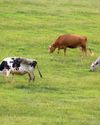
Africa goes from net carbon sink to source
New research shows Africa's impact on greenhouse gases and the need to focus on climate-smart agriculture
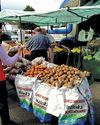
Ireland potato farmers unable to complete planting
Irish potato farmers have reported a delay in harvest and said that the UK might have to prepare for shortages of the produce. The shortfall is due to extreme wet weather during their planting season.
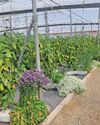
Zero-residue fresh produce a reality
Retail giants are calling for caution when using biologicals and chemical pesticides,

Big boost for mohair producers in Eastern Cape
A collaboration between the Eastern Cape Development Corporation (ECDC) and the Mohair Empowerment Trust (MET) has resulted in a R1,4 million injection into four emerging Angora goat farming operations in the Eastern Cape.
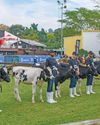
KZN Youth Show at Roval Agricultural Exhibition
The KZN Youth Show will run from Friday, 24 May to Sunday, 26 May at the Royal Showgrounds in Pietermaritzburg.
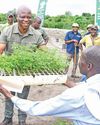
Hemp permits and irrigation system handed over
In an effort to fast-track the entry of rural farmers into the cannabis and hemp industries, KwaZuluNatal Minister for Agriculture and Rural Development, Super Zuma, visited the Shukasibheme Project in Mbazwana, a co-operative in Mseleni, uMhlabuyalingana in the Umkhanyakude District, to hand over cannabis and hemp permits as well as a borehole and irrigation system.

Meet some of the heroes behind avitourism destinations
Exploring what the Garden Route offers birdwatchers, Brian Berkman discovers some special people who run hospitable places to meet and see a variety of species.
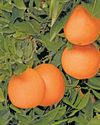
What the Citrus Academy offers aspiring producers
Cobus du Plessis takes a look at the Citrus Growers' Association of Southern Africa's Citrus Academy and how it is helping to develop aspiring farmers in the sector.
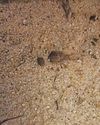
Natural-born killers of the insect world
The Myrmeleontidae family of lacewings from the Neuroptera order of insects consists of about 2 000 species of which 125 are found in South Africa.
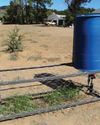
Seeder kick-starts vegetation in challenging environments
Dr George Craven of Noorspoort, Steytlerville, in the south-eastern Karoo, is successfully using a home-built 'bedstead seeder' to re-establish veld plants in an arid area, writes Roelof Bezuidenhout.